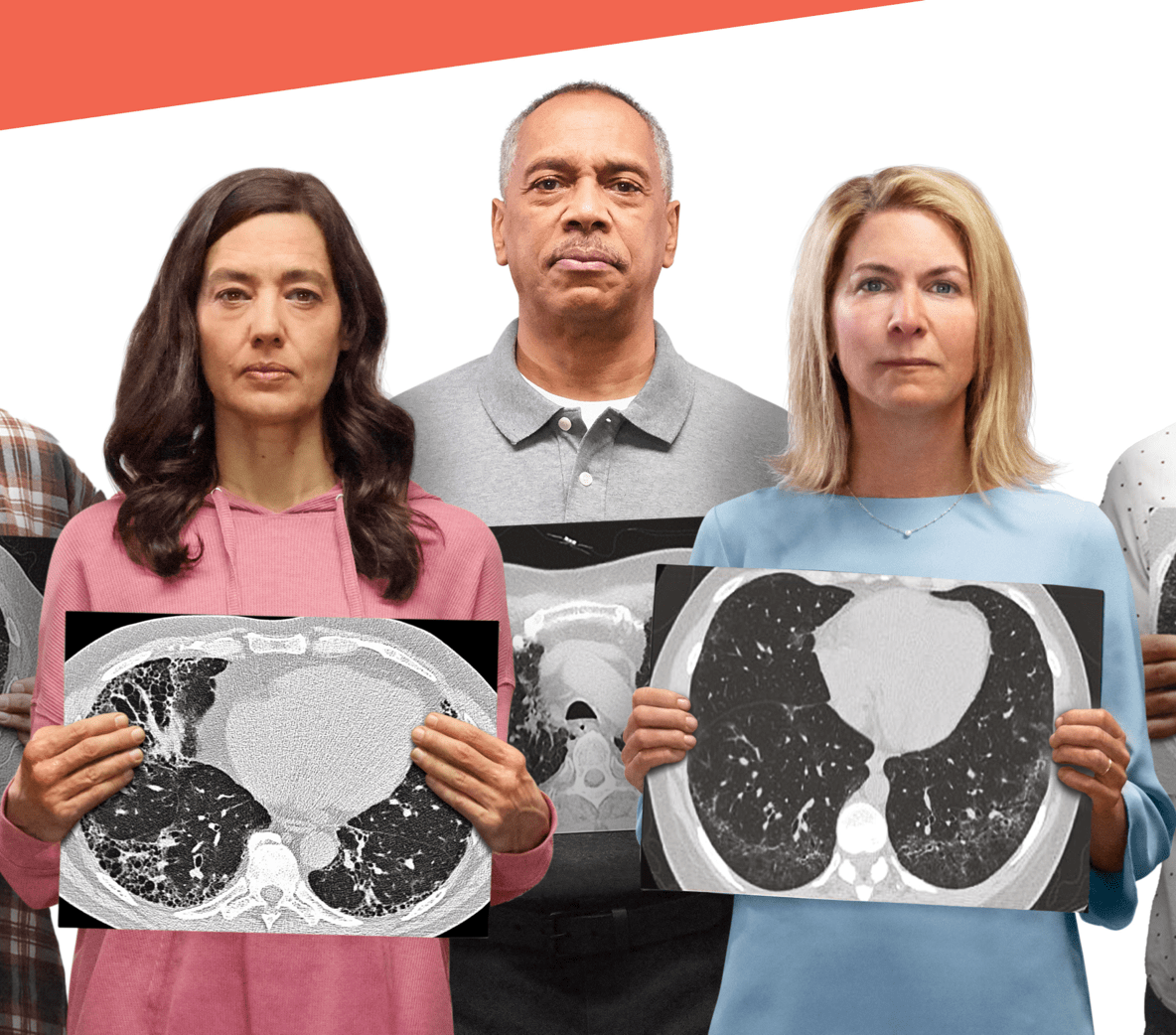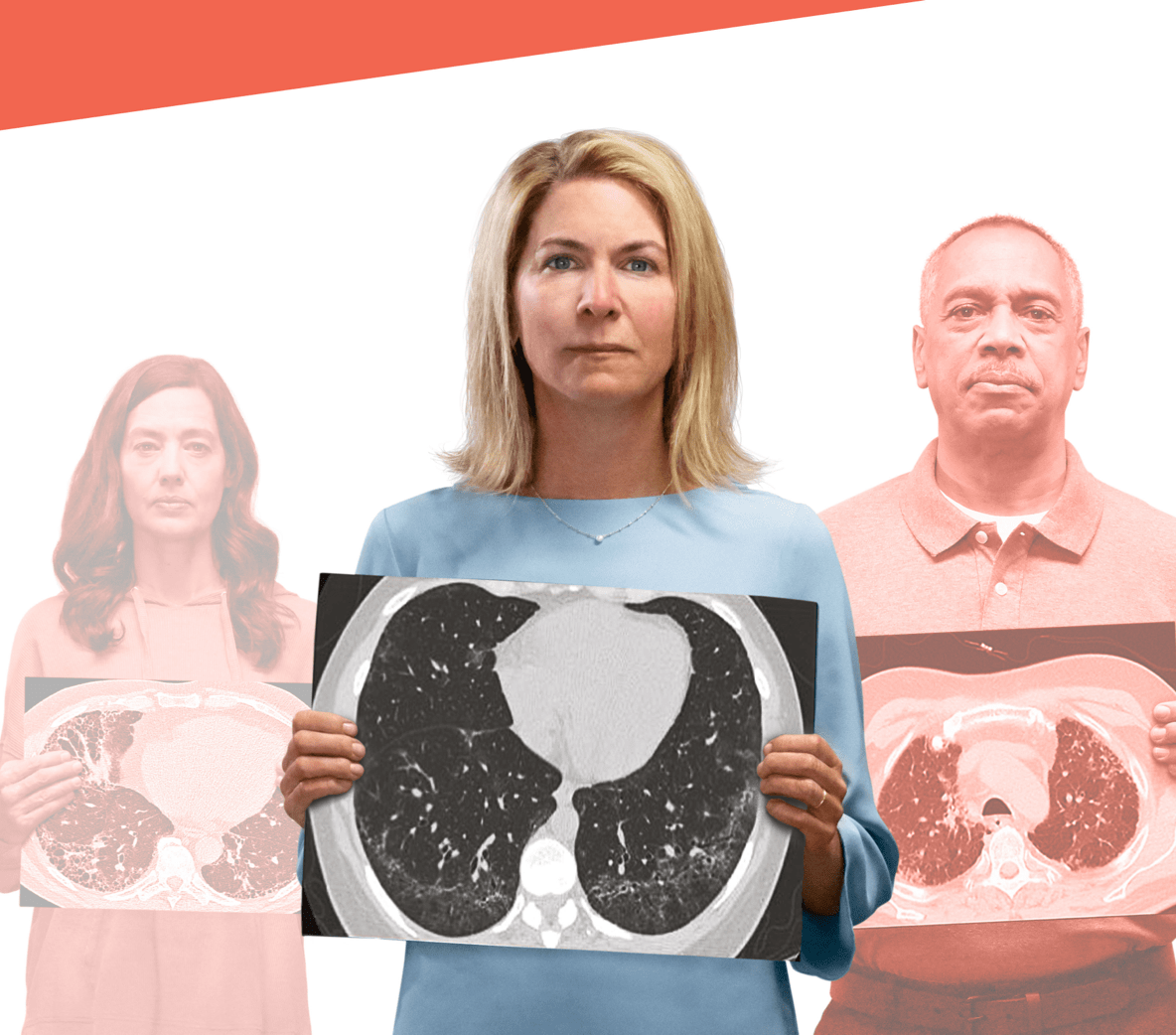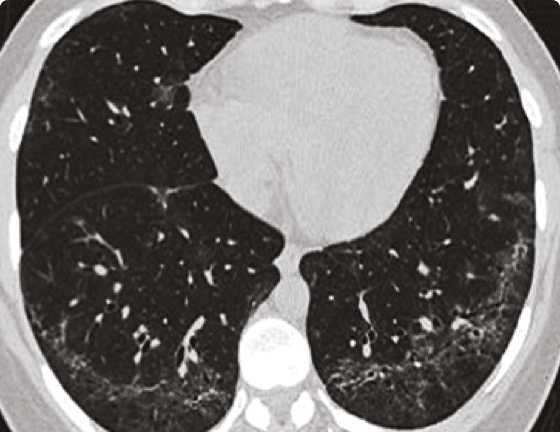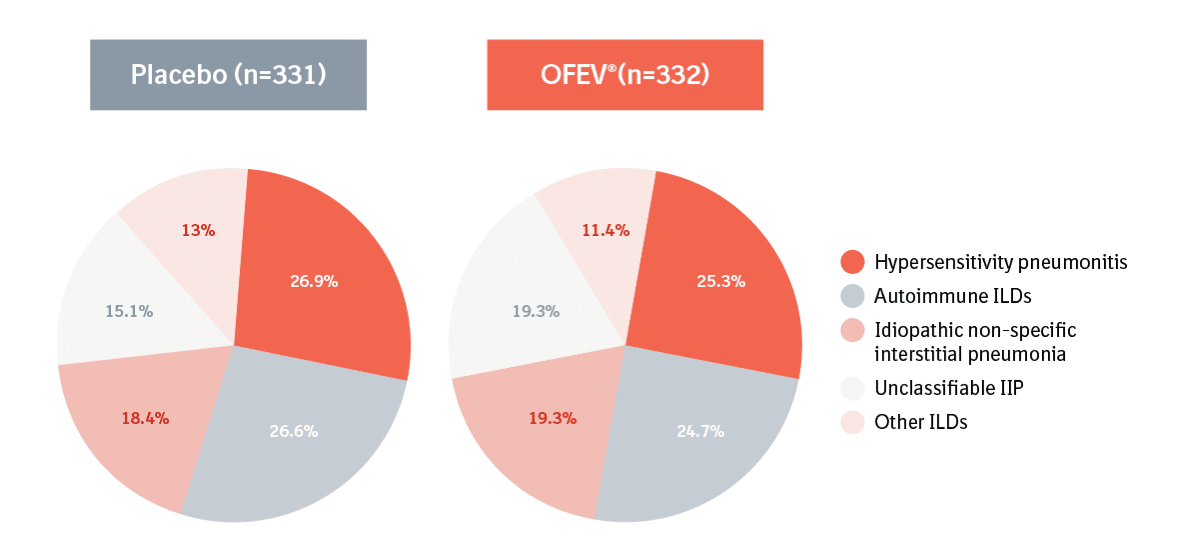
For patients with chronic progressive pulmonary fibrosis, it’s about time
Chronic progressive pulmonary fibrosis is a clinically challenging development in the course of many interstitial lung diseases (ILDs).1 Although classed as rare diseases, ILDs impact a wide range of patients; men and women.2 Damage caused by fibrosis leads to irreversible scarring of the underlying lung tissue, impeding lung function and stealing away the breath, livelihoods and sometimes lives that depend on it.2 This website has been developed for the ILD healthcare community who are working to change that outcome.

Commitment to progress
Thanks to the commitment of the ILD community, significant progress has been made for these rare diseases over the past decade. Awareness, knowledge and understanding of the role fibrosis plays in disease progression has grown. Since the introduction of anti-fibrotic treatments for IPF, such as OFEV® (nintedanib), care pathways and referral processes have steadily improved, providing much-needed opportunities for patients to access the vital care and treatment they need to slow disease progression and gain more time free from serious and debilitating events.5,6
Today, the effect of the tyrosine kinase inhibitor, OFEV®, on fibrosis in progressive disease other than IPF has introduced opportunities to slow the rate of disease progression in more patients with chronic progressive fibrotic ILDs.8 By raising awareness of the chronic progressive fibrotic phenotype and the impact this type of progressive pulmonary fibrosis has on ILD patients, we hope to help improve the diagnosis, care and outcomes for patients living with these diseases.

FVC, forced vital capacity; NICE, National Institute for Health and Care Excellence; SMC, Scottish Medicines Consortium

OFEV® is indicated for the adult treatment of 8
- Idiopathic pulmonary fibrosis (IPF).
- Other chronic fibrosing interstitial lung diseases (ILDs) with a progressive phenotype.

Refresh your ILD knowledge

What happens when fibrosis takes over in ILD?

Who's at risk of a chronic progressive fibrotic phenotype?

How will the largest ILD study help you change the future?
- Olson A et al. Poster to be presented at ERS 2018.
- Ley B et al. Am J Respir Crit Care Med 2011;183(4):431-440.
- Raghu G et al. Am J Respir Crit Care Med 2011;183:788-824.
- Fujimoto H et al. Clin Med Insights Circ Respir Pulm Med 2016;8(9):179-185.
- Flaherty KR et al. N Engl J Med 2019;381(18):1718-1727.
- Richeldi L et al. N Engl J Med 2014;370(22):2071-2082.
- Simpson T et al. Eur Respir J 2021; in press.
- OFEV® 100 mg and 150 mg soft capsules Summary of Product Characteristics. Boehringer Ingelheim.
- Scottish Medicines Consortium. Nintedanib (Ofev). Available at: https://www.scottishmedicines.org.uk/media/2044/nintedanib__ofev__final_september_2015_amended_061015_for_website.pdf (Accessed July 2023).
- National Institute for Health and Care Excellence (NICE). Technology appraisal guidance TA379. Available at: www.nice.org.uk/guidance/ta379 (Accessed July 2023).
- National Centre for Pharmacoeconomics. Available at: http://www.ncpe.ie/drugs/nintedanib-ofev/ (Accessed July 2023).
- Richeldi L et al. Thorax 2018;73:581-583.
- European Medicines Agency. Available at: https://www.ema.europa.eu/en/documents/procedural-steps-after/ofev-epar-procedural-steps-taken-scientific-information-after-authorisation_en.pdf (Accessed July 2023).
- Scottish Medicines Consortium (SMC). Treatment in adults of other chronic fibrosing interstitial lung diseases with a progressive phenotype. SMC2331. Published 7 June 2021. Available at: https://www.scottishmedicines.org.uk/medicines-advice/nintedanib-ofev-full-smc2331/ (Accessed July 2023).
- National Institute for Health and Care Excellence (NICE). Nintedanib for treating progressive fibrosing
interstitial lung diseases. Technology appraisal guidance TA747: November 2021. Available at: https://
www.nice.org.uk/guidance/ta747 (Accessed July 2023). - Scottish Medicines Consortium (SMC). In adults for the treatment of idiopathic pulmonary fibrosis (IPF). SMC2513. Published March 2023. Available at: https://www.scottishmedicines.org.uk/medicines-advice/nintedanib-ofev-resub-smc2513/ (Accessed August 2023).
- National Institute for Health and Care Excellence (NICE). Technology appraisal guidance TA864. Available at: https://www.nice.org.uk/guidance/ta864 (Accessed August 2023).
Adverse events should be reported.
UK: Reporting forms and information can be found at www.mhra.gov.uk/yellowcard. Adverse events should also be reported to Boehringer Ingelheim Drug Safety on 0800 328 1627 (freephone) or by email to PV_local_uk_ireland@boehringer-ingelheim.com.
IE: Reporting forms and information can be found at www.hpra.ie/homepage/about-us/report-an-issue. Adverse events should also be reported to Boehringer Ingelheim Drug Safety on 01 291 3960 or by email to PV_local_uk_ireland@boehringer-ingelheim.com.
OFEV® is indicated in adults for the treatment of idiopathic pulmonary fibrosis (IPF) and for the treatment of other chronic fibrosing interstitial lung diseases (ILDs) with a progressive phenotype. The recommended dose is one 150 mg capsule taken twice daily.8







